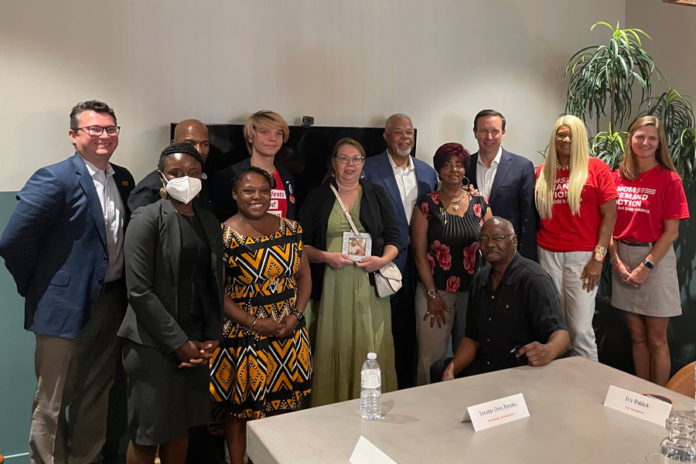As of the writing of this article, on August 15, 2022, 344 homicides have occurred in Philadelphia. Mass shootings in other parts of our Country have been the catalyst for much of the commonsense gun activism and legislation on the Federal level. Still, there are daily massacres in urban areas such as Philadelphia, Chicago, St. Louis, Birmingham, Baltimore, and Detroit (to name just a few), which must be addressed. Perhaps urban massacres are slow-moving, but still massacres. Senator Chris Murphy, the junior Democratic Senator from Connecticut, was quoted by NBC NEWS as saying, «Shooting after shooting, murder after murder, suicide after suicide — for 30 years, Congress stood in its political corners and did nothing. But not this time, and this will become the most significant piece of anti-gun-violence legislation Congress has passed in three decades.»

Senator Murphy was referring to the Bipartisan Safer Communities Act, which he negotiated with Republican Senators John Cornyn of Texas, Thom Tillis of North Carolina, and Democratic Senator from Arizona, Kyrsten Sinema.

Last week, I had the honor of participating in a roundtable discussion with Senator Chris Murphy, Everytown USA, and Philadelphia activists to discuss the Bipartisan Safer Communities Act at Bond Collective in Center City. The Senator spoke about his incredibility at the lack of action in Washington considering continuous mass shootings and the hold the opposers of common-sense gun legislation have on the Senate.

Senator Murphy chaired the meeting, explaining the nuances of the law. At the same time, participants gave input about the legislation, subsequent policies, and funding for gun violence prevention that will soon follow.
Among the participants were Reverend Jeanette Davis of Diva’s Ministry, Erica Atwood, Senior Director, Office of Policy and Strategic Initiatives for Criminal Justice and Public Safety for Philadelphia, Joseph Purnell of Neighbors United Against Drugs, Roy Wilcox of Everytown, Guests from Mothers Demand Action, Eric Riddick and Christine Riddick and Dr. Ruth Abaya. of The Philadelphia Health Department.

As a survivor of my son’s (Alejandro Rojas Garcia) murder, I was invited there to tell my story. Still, my agenda was to ensure that the victim’s and co-victim’s voices were part of this critical conversation. Latino voices must also be present during these conversations because we are also affected.

As a precursor to implementing the next steps and the powers of the Bipartisan Safer Communities Act, Senator Murphy was eager to hear stories and suggestions from Philadelphians directly impacted by gun violence. One of the questions the Senator asked us was whether we thought the Federal government, state government, or City of Philadelphia should distribute the funds to grassroots organizations and programs to reduce gun violence. As one participant responded that there had been lag and inefficiency in the distribution of funds by the financial conduit chosen by the City, heads moved in agreement. But the participants were equally skeptical of State or Federal management, siting their previous experiences with the complications of requesting federal or state funds. I think the City will get another chance to manage the funds, and I suggest they get an efficient accounting group. There is a lot of work ahead, and many nonprofits are ready to help.








